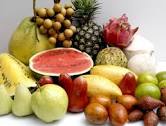Proper diet for HIV patient – Diet plays an important role in maintaining normal health. Dietary guidelines are especially important for people who have HIV positive infection, as poor nutritional status increases the risk of opportunistic infections.
Proper diet for HIV patient !
A balanced diet of vegetables are recommended for people with HIV infection. Cereals contain complex carbohydrates, B-complex vitamins, proteins and several minerals. Since they are the main source of energy, they should form the major portion of the entire diet.
Protein requirement for people with HIV infection is suspected to be higher than those without the infection. Proteins can be obtained from eggs and diary products of good quality.
Fish and meat can also be good sources of proteins. Vegetarians need to eat larger portions of whole grains, nuts and legumes to meet the daily protein requirement. Since the body does not store proteins, it is important that adequate proteins are consumed everyday.
Dairy products such as milk, yogurt, paneer, cheese are rich in calcium. Regular intake of these foods helps maintain normal functions of the muscles, bones, nerves and the brain.
More tips on healthy balanced meals and proper diet for HIV patient
Vegetables and fruits are also an important part of the balanced diet. They provide vitamins and minerals necessary for healthy living. Colored vegetables and fruits are preferable because they have important nutrients such as beta carotenes.
They are also important anti oxidants which are essential for maintaining normal health. Anti oxidants are chemicals or other agents that inhibit or retard oxidation of a substance to which for any process that increases oxygen content of a substance. HIV infection increases the risk of wasting of the muscles. As a result, the affected person becomes weak and sick.
In order to avoid muscle wasting, people with HIV need to exercise regularly and eat small and frequent meals everyday. Three meals and two snacks are desirable at fixed times. These meals should be taken even if there is no hunger.
Fluids such as water, fruit juices and herbal teas should be consumed more by people with HIV infection. Coffee and tea can lead to dehydration and therefore their intake should be limited to a total of about four cups a day. Alcohol should be avoided as it adversely affects the liver, especially if taken along with medicines.
RELATED TOPICS
Best hospitals in North Carolina
Air travel with medical conditions
